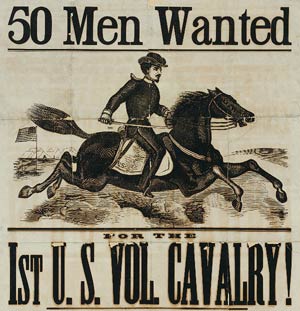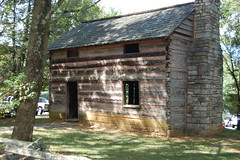 Image via Wikipedia Image via Wikipedia |
| The odd bird John Fremont |
- US General John Fremont declares martial law in St. Louis, Missouri. Fremont also orders two newspapers closed for allegedly pro-Southern editorials./1861
- In Richmond, Jefferson Davis orders the banishment of all foreign nationals whose home countries did not recognize the Confederate government./1861
- In Washington, President Lincoln decides to violate further Kentucky’s neutrality and Tennessee’s sovereignty and send assistance to Union men in Kentucky and Tennessee. He selects Brig. Gen. Robert Anderson, a Kentuckian, to command three brigades, and consults again with Tennessee Senator Andrew Johnson and Congressman Maynard. /1861






























